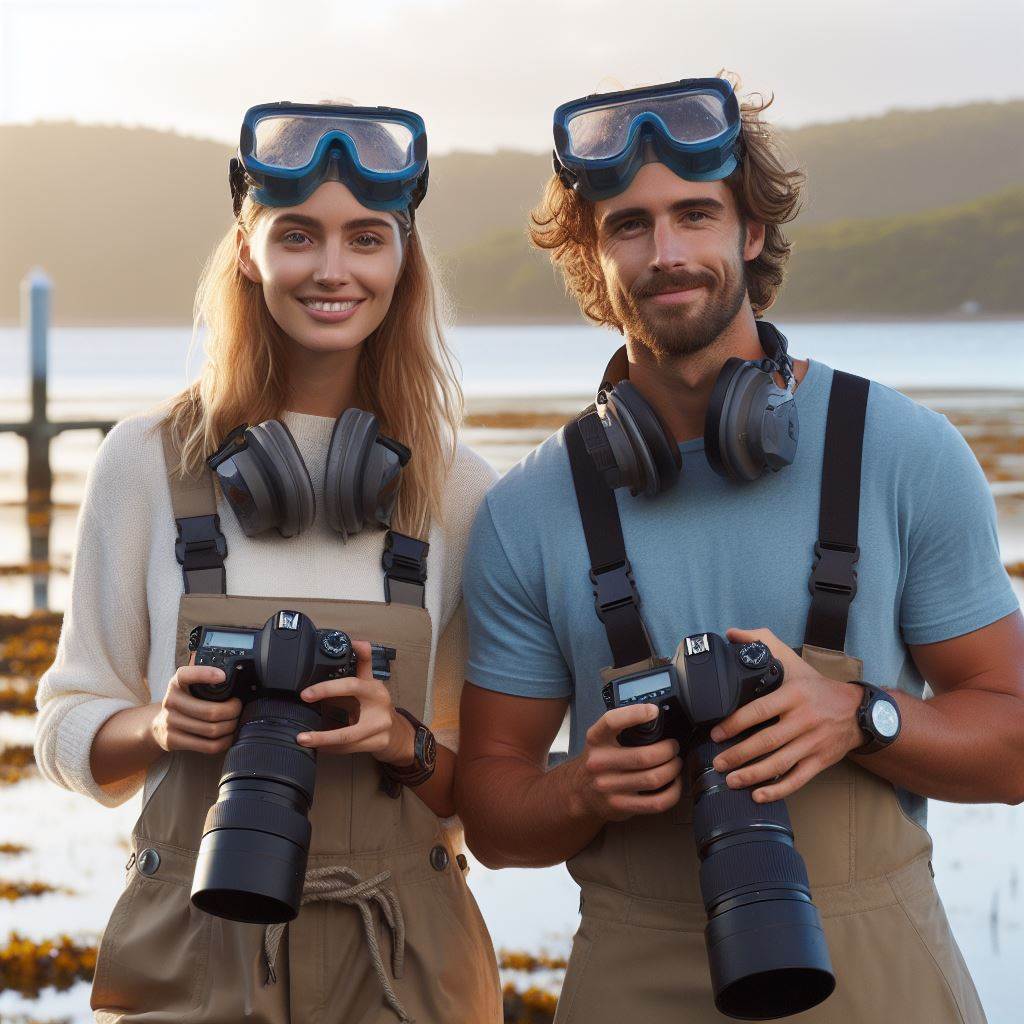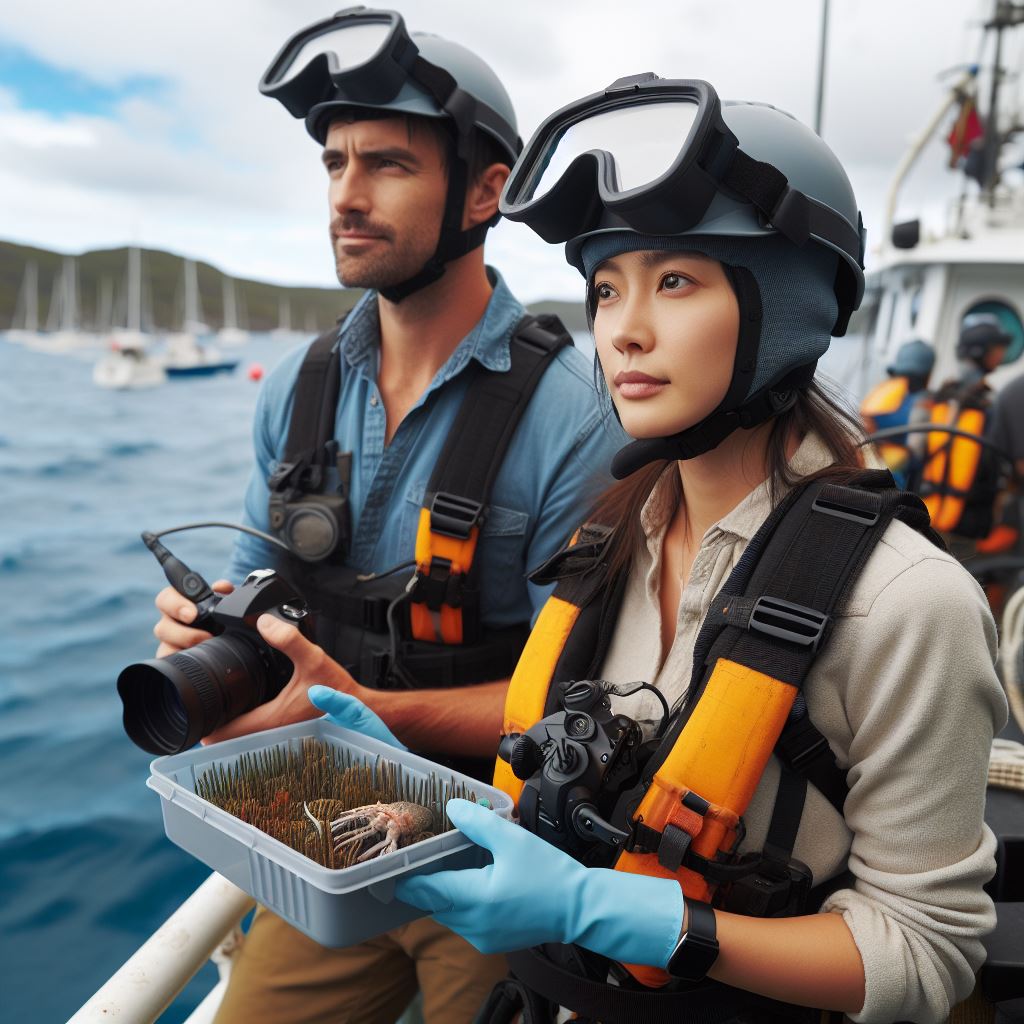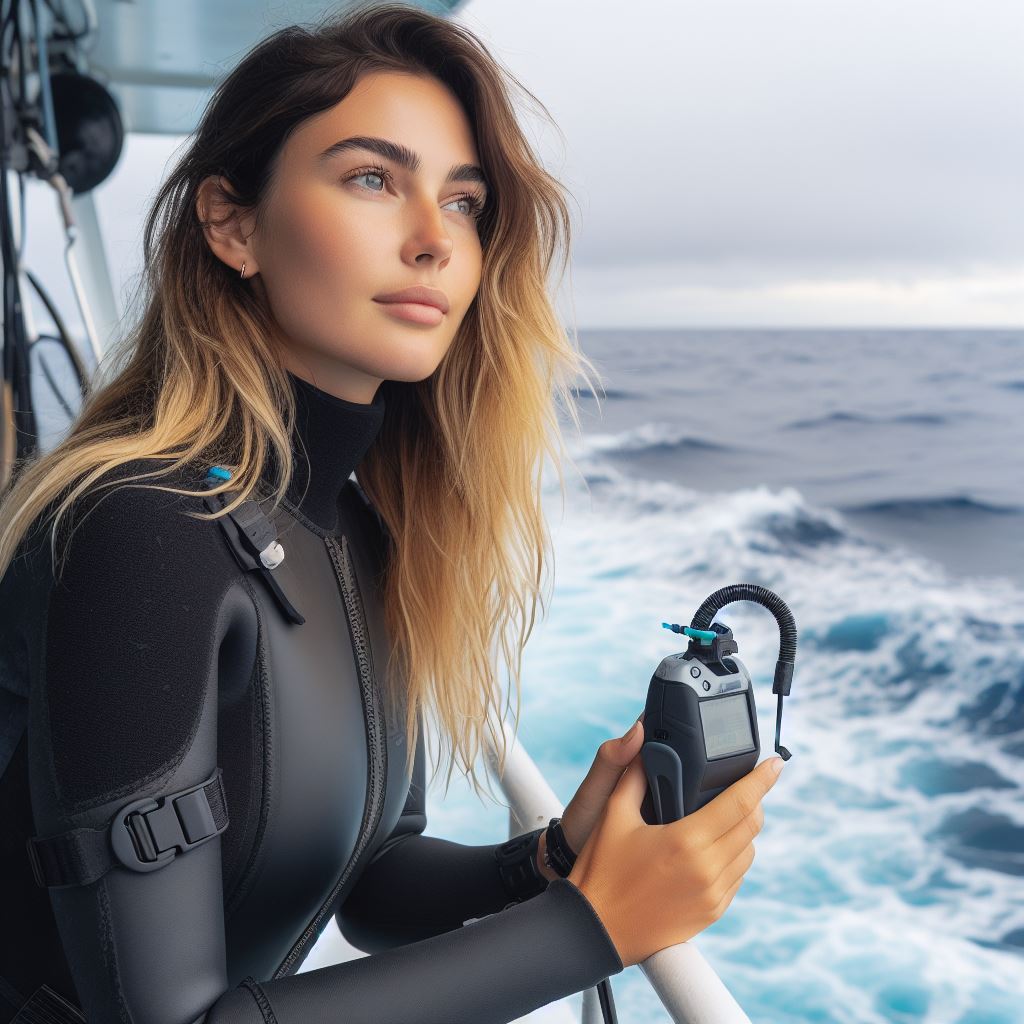Introduction
Marine biology is a fascinating field that explores the diverse ecosystem of marine organisms and their interactions. In Australia, marine biology plays a crucial role due to its extensive coastline and rich biodiversity.
Overview of marine biology as a field
Marine biology is the study of marine organisms, including plants, animals, and microorganisms, and their environments. It encompasses various disciplines such as ecology, conservation, and genetics.
Importance of marine biology in Australia
Australia has the third-largest marine territory globally, making marine biology vital for understanding and conserving its unique marine biodiversity. It helps in managing sustainable fisheries and protecting endangered species like the Great Barrier Reef.
Marine biology research also contributes to understanding climate change impacts on marine ecosystems, including rising sea temperatures and ocean acidification. It aids in the development of strategies for adaptation and mitigation.
Moreover, marine biology drives economic growth through activities like aquaculture, tourism, and offshore energy production. It provides jobs and promotes sustainable use of marine resources.
Generally, marine biology in Australia offers exciting opportunities for those passionate about studying and protecting marine life. It contributes to scientific knowledge, conservation efforts, and sustainable economic development.
By exploring this field, individuals can make a positive impact on preserving Australia’s marine ecosystems for future generations.
Education and Training
Required academic qualifications and degrees
To pursue a career in marine biology in Australia, certain academic qualifications and degrees are essential. These qualifications provide a strong foundation and enhance your chances of breaking into this field.
First and foremost, a bachelor’s degree in marine biology or a related field is necessary. This degree equips you with fundamental knowledge and skills required to understand marine ecosystems and their dynamics.
Many universities offer specialized marine biology programs that focus on these concepts.
Additionally, it is advisable to pursue a master’s degree in marine biology or a related discipline. This advanced degree allows you to delve deeper into specific aspects of marine biology and conduct research in your area of interest.
It provides a competitive edge in the job market and opens up opportunities for higher-level positions.
Furthermore, a Ph.D. in marine biology is highly desirable for those interested in research, teaching, or leadership roles within the field. This degree is typically specialized and involves conducting original research that contributes to the existing body of knowledge in marine biology.
Specializations within marine biology
Marine biology offers a wide range of specializations that allow individuals to focus on specific areas of interest. Some common specializations within this field include
- Marine ecology: This specialization focuses on the interactions between organisms and their environment within marine ecosystems. It explores the relationships between organisms, as well as the impact of human activities on these ecosystems.
- Marine conservation: This specialization centers around the preservation and sustainable management of marine resources. It involves developing strategies to protect endangered species, restore habitats, and combat pollution and overfishing.
- Marine microbiology: This specialization involves the study of microorganisms that inhabit marine environments. It explores their roles in nutrient cycling, disease outbreaks, and the overall health of marine ecosystems.
- Marine biochemistry: This specialization examines the chemical processes and compounds present in marine organisms and their environments. It investigates how these compounds influence biological processes and the adaptation of organisms to their surroundings.
Internships and fieldwork opportunities
Gaining hands-on experience through internships and fieldwork is crucial for aspiring marine biologists. These opportunities allow you to apply theories learned in the classroom to real-world scenarios and develop practical skills.
Many universities and research institutions offer internships in marine biology. These programs provide valuable exposure to various research projects and enable you to work closely with experienced marine biologists.
Internships also enhance your network and may lead to job prospects upon completion.
Fieldwork is another integral component of marine biology education and training. It involves conducting research and data collection in marine environments.
Fieldwork may include tasks such as water sampling, species identification, and data analysis. Participating in fieldwork not only enhances your practical skills but also exposes you to the challenges and adventures of working in marine environments.
In general, breaking into marine biology in Australia requires acquiring the necessary academic qualifications and degrees. Specializations within the field provide opportunities to focus on specific areas of interest.
Internships and fieldwork experiences further enhance skills and provide valuable practical knowledge. Pursuing education and training in marine biology sets the stage for a rewarding career in understanding and conserving our precious marine ecosystems.
Your Personalized Career Strategy
Unlock your potential with tailored career consulting. Get clear, actionable steps designed for your success. Start now!
Get StartedSkills and Qualities
A successful career in marine biology requires a combination of skills and qualities that are essential for the study and conservation of marine life. If you aspire to break into the field of marine biology in Australia, it is important to possess the following:
Strong interest in marine life and conservation
Having a genuine passion for marine life and a deep concern for its conservation is the foundation for a career in marine biology. This interest will drive your motivation and push you to make a meaningful contribution to marine science.
Proficiency in scientific research methods
An essential skill for a marine biologist is proficiency in scientific research methods. This includes the ability to design experiments, collect and analyze data, and interpret findings accurately. These skills will allow you to contribute to the body of knowledge in marine biology.
Excellent communication and teamwork skills
Being able to effectively communicate your research findings to both scientific and non-scientific audiences is crucial.
Strong communication skills will enable you to advocate for marine conservation and engage others in understanding the importance of protecting marine ecosystems.
Additionally, the ability to work collaboratively with colleagues in a team setting is essential for conducting fieldwork and research expeditions.
To develop these skills and qualities, there are several steps you can take:
- Immerse yourself in marine biology: Attend lectures, seminars, and workshops related to marine biology to deepen your understanding of the subject.
Engage in hands-on experiences, such as volunteering at local aquariums or participating in marine research projects, to gain practical knowledge. - Acquire knowledge of scientific research methods: Take courses or workshops that focus on scientific research methods and data analysis. Familiarize yourself with statistical software and research protocols commonly used in marine biology.
- Develop communication skills: Practice presenting scientific information in a clear and concise manner. Join public speaking clubs or participate in science communication training programs to enhance your ability to effectively deliver complex information to various audiences.
- Collaborate with others: Seek opportunities to work with fellow marine biologists or scientists from other disciplines. Participating in research projects or attending conferences and symposiums will enable you to network and foster collaborations.
- Stay updated on marine conservation efforts: Follow the latest developments and research in marine conservation. Engage with organizations working in this field and stay informed about current marine issues.
This knowledge will allow you to contribute meaningfully to the conservation of marine ecosystems.
In review, breaking into marine biology in Australia requires a strong interest in marine life and conservation, proficiency in scientific research methods, and excellent communication and teamwork skills.
By developing these skills and qualities, you will be well-equipped to make a positive impact in the field of marine biology and contribute towards the preservation of Australia’s rich marine biodiversity.
Job Opportunities
Academic and research positions
- Marine biology graduates can pursue academic careers as professors or researchers.
- Universities and research institutions offer opportunities to conduct cutting-edge research projects.
- These positions involve teaching, mentoring students, publishing research papers, and securing grants.
- Academic positions provide job stability and opportunities for professional growth.
Government and non-profit organizations
- Marine biology graduates can work for government agencies such as the Department of Environment.
- They play crucial roles in conserving and managing marine ecosystems and protected areas.
- Non-profit organizations like Greenpeace and World Wildlife Fund also hire marine biologists.
- These organizations focus on environmental advocacy, research, and conservation efforts.
Private sector and consultancy roles
- Private companies involved in marine resource management hire marine biologists.
- They work on projects related to fisheries, aquaculture, and environmental impact assessments.
- Consulting firms offer employment opportunities for marine biologists to conduct environmental assessments.
- They provide expertise in marine biology for projects such as coastal development or offshore energy operations.
Marine education and eco-tourism
- Marine biologists can work as educators in aquariums, zoos, or nature centers.
- They deliver educational programs about marine life, conservation, and environmental stewardship.
- Eco-tourism companies hire marine biologists as guides or researchers for environmental expeditions.
- These roles allow professionals to share their knowledge while promoting conservation awareness.
International opportunities
- Marine biology graduates can explore job prospects in other countries around the world.
- Many nations have a strong focus on marine research and conservation, offering numerous opportunities.
- International organizations like the United Nations and UNESCO also hire marine biologists.
- These opportunities provide a global perspective and allow professionals to make a broader impact.
Basically, breaking into marine biology in Australia offers a range of job opportunities.
Whether it’s pursuing academic and research positions, working for government and non-profit organizations, or venturing into the private sector, marine biologists can find fulfilling careers.
Additionally, opportunities in marine education and eco-tourism, as well as international prospects, further enhance the field’s appeal. With the ever-growing need to understand and protect marine ecosystems, marine biology continues to be a rewarding and impactful profession.
Read: Balancing Lab Work and Life in Australia
Networking and Professional Associations
Importance of networking in marine biology
- Networking plays a crucial role in building connections and opportunities in marine biology.
- It allows you to engage with professionals, researchers, and other individuals in the field.
- By networking, you can stay updated with the latest advancements and research in marine biology.
- Networking helps in gaining access to job opportunities, internships, and research collaborations.
- It provides a platform to share ideas, knowledge, and experiences with like-minded individuals.
- Building a strong network can lead to mentorship opportunities, guidance, and career development.
- Attending conferences, workshops, and seminars is an effective way to network in marine biology.
- Networking allows you to learn from experienced professionals and researchers in the field.
- Collaborating with others through networking can lead to impactful research projects.
- Networking helps in establishing a positive reputation and credibility in the marine biology community.
Overview of professional associations in Australia
- Australia has several professional associations dedicated to marine biology and related fields.
- The Australian Marine Sciences Association (AMSA) is one of the prominent associations in the country.
- AMSA promotes marine science research, education, and conservation in Australia.
- The Society for Conservation Biology Australia (SCB) focuses on marine conservation efforts.
- The Australian Coral Reef Society (ACRS) specifically deals with research and preservation of coral reefs.
- The Australian Society for Fish Biology (ASFB) is dedicated to the study of fish and their habitats.
- Other associations include the Australian Marine Mammal Conservation Foundation (AMMCF) and the Australian Society of Limnology (ASL).
- These associations organize conferences, seminars, and workshops for knowledge exchange and networking.
- They publish journals, newsletters, and research papers to disseminate information in the field.
- Membership in these associations provides access to resources, job listings, and funding opportunities.
Benefits of joining these associations
- Joining professional associations in marine biology enhances your professional credibility and reputation.
- It provides a platform to interact with renowned experts and leaders in the field.
- Membership offers opportunities for presenting research findings and attending conferences.
- Associations facilitate collaborations, enabling you to work with experts on research projects.
- They offer mentoring programs, career development resources, and guidance for young marine biologists.
- Access to newsletters, publications, and databases keeps you updated with the latest research in the field.
- Professional associations advocate for marine conservation and raise awareness about environmental issues.
- They offer networking events, making it easier to connect with potential employers and collaborators.
- Membership discounts for conferences, workshops, and training programs save you money.
- These associations provide a supportive community of professionals who share your passion for marine biology.
Networking and joining professional associations are essential steps in breaking into marine biology in Australia. Building connections, staying updated, and accessing opportunities are key benefits of networking.
The professional associations in Australia, such as AMSA, SCB, ACRS, and ASFB, offer a range of advantages including knowledge exchange, resources, and funding opportunities.
By becoming a member, you can enhance your credibility, collaborate with experts, and access career development programs. These associations create a supportive community and contribute to the conservation and research efforts in marine biology.
Read: Australian Women in Chemistry: Trailblazers

Discover More: Day in the Life of Aussie Marine Biologists
Challenges and Opportunities
Competition within the field
- Marine biology in Australia is a highly competitive field that requires dedication and passion.
- Many individuals are attracted to the beauty and wonders of the marine environment, resulting in a large pool of aspiring marine biologists.
- Securing a job or research position in marine biology can be challenging due to intense competition.
- It is crucial for aspiring marine biologists to differentiate themselves by gaining relevant experience and developing specialized skills.
- Networking and building professional relationships can also enhance opportunities within the industry.
Importance of staying updated with latest advancements
- Marine biology is a dynamic field constantly evolving with new discoveries and technological advancements.
- Staying updated with the latest advancements is crucial for marine biologists to remain competitive and relevant.
- New tools, techniques, and research methods can significantly impact the understanding of marine ecosystems and species.
- Attending conferences, workshops, and engaging in continuing education programs are essential to stay ahead in the field.
- Collaborating with researchers and scientists from different disciplines can also lead to exciting opportunities and advancements.
Growing demand for marine biologists in Australia
- Australia, surrounded by vast oceans, presents a favorable environment for marine biology research and exploration.
- The country’s unique marine ecosystems, including the Great Barrier Reef, attract marine biologists from around the world.
- With increasing concerns about climate change and the impact on marine ecosystems, the demand for marine biologists is growing.
- Government organizations, research institutions, and environmental consulting firms actively seek marine biologists to address conservation and management issues.
- The growing demand provides numerous employment and research opportunities for individuals pursuing a career in marine biology.
Essence, breaking into marine biology in Australia offers both challenges and opportunities. The field is highly competitive, requiring individuals to differentiate themselves through experience, skills, and networking.
Staying updated with the latest advancements is crucial to remain relevant in this ever-evolving field.
Additionally, the growing demand for marine biologists in Australia provides numerous employment and research opportunities, especially in addressing conservation and management concerns.
Overall, with passion, dedication, and continuous learning, aspiring marine biologists can thrive in this exciting field.
Read: Must-Attend Chemistry Conferences in Aus
Learn More: Postgrad Paths in AU Research
Gain More Insights: Marine Biology Careers in AU
Stand Out with a Resume That Gets Results
Your career is worth more than a generic template. Let us craft a resume and cover letter that showcase your unique strengths and help you secure that dream job.
Get HiredTips for Breaking into Marine Biology in Australia
Achieving a successful career in marine biology in Australia requires dedication, commitment, and the right set of skills and qualifications. Here are some tips to help you break into this competitive field.
Pursuing relevant academic degrees and certifications
- Research and identify the academic degrees and certifications that are relevant to marine biology.
- Enroll in reputable universities or institutions that offer these programs.
- Ensure that the curriculum covers essential topics such as marine ecology, conservation, and species identification.
- Take advantage of opportunities for fieldwork and practical training to gain hands-on experience.
- Obtain relevant certifications such as diving licenses or safety training for working in marine environments.
Gaining hands-on experience through internships and volunteering
- Apply for internships or volunteer positions at marine research organizations, aquariums, or government agencies.
- Participate in research projects that focus on marine ecosystems and conservation efforts.
- Build practical skills in data collection, laboratory techniques, and research methodologies.
- Show initiative, enthusiasm, and a willingness to learn during these opportunities.
- Network with professionals who can provide references or future job opportunities.
Building a strong professional network
- Attend marine biology conferences, seminars, and workshops to meet industry professionals.
- Join societies and associations focused on marine biology and conservation.
- Participate in online forums and social media groups dedicated to marine science.
- Maintain contact with professors, mentors, or researchers you meet during your academic journey.
- Network within your internship or volunteering positions to create connections in the field.
Staying updated with industry trends and advancements
- Read scientific journals, publications, and books related to marine biology and oceanography.
- Follow reputable marine science websites and blogs for the latest news and research findings.
- Attend conferences and workshops to learn about emerging technologies and methodologies.
- Engage in continuing education and professional development opportunities to enhance your skills.
- Stay informed about environmental policies, conservation efforts, and sustainability issues.
Essentially, breaking into marine biology in Australia requires a combination of academic qualifications, hands-on experience, networking, and staying updated with industry trends.
By pursuing relevant degrees and certifications, gaining practical experience, building a strong professional network, and staying informed, you can increase your chances of success in this exciting field.
Read: Innovative Chemistry Startups in Australia
Find Out More: Australian Enviro Science: Govt vs Private Sector
Conclusion
Breaking into marine biology in Australia requires dedication, education, and a passion for marine ecosystems.
By pursuing relevant qualifications and gaining hands-on experience, aspiring marine biologists can increase their employability.
Networking with professionals, participating in internships, and volunteering are crucial steps toward entering the field.
Australian marine biology offers diverse career opportunities, from research and conservation to education and policy development.
Staying updated on industry trends, advancements in technology, and emerging research areas enhances career prospects.
Persistence and adaptability are key traits for navigating the competitive field of marine biology.
Despite challenges, the rewards of contributing to marine conservation and research are fulfilling and impactful.
In closing, breaking into marine biology demands commitment, perseverance, and continuous learning.
With determination and the right skills, aspiring marine biologists can make a meaningful difference in Australia’s marine ecosystems.




